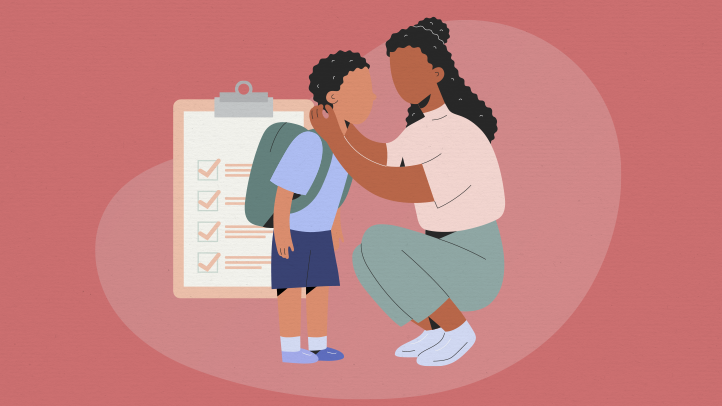Understanding the Link Between ADHD and Selfish Behavior
Attention-deficit/hyperactivity disorder (ADHD) is a common neurodevelopmental disorder characterized by inattention, hyperactivity, and impulsivity. An estimated 8.4% of children and 2.5% of adults have ADHD. While the causes of ADHD are not fully understood, research suggests that genetics and differences in brain development and brain chemistry play a role.
One common struggle for people with ADHD is impaired executive functioning. Executive functions are a set of mental skills that help us control our thoughts, emotions, and behaviors. They include working memory, self-control, organization, time management, planning, and problem-solving. Since executive functioning affects self-regulation, some people with ADHD can be perceived as selfish or self-centered.
ADHD, Executive Functioning, and Self-Regulation
Several executive function deficits associated with ADHD can contribute to behaviors that may be mistaken for selfishness:
- Poor impulse control - Acting spontaneously without considering consequences
- Limited self-awareness - Difficulty recognizing one's own behaviors and their impact on others
- Poor planning and prioritization - Struggling with time management, task initiation, organization
- Forgetfulness and distraction - Having a hard time staying focused or remembering responsibilities
- Difficulty delaying gratification - Wanting immediate rewards and being less willing to wait
These executive function deficits make it hard for people with ADHD to self-regulate. As a result, they may sometimes act in their own self-interest without meaning to be selfish. Their actions are more impulsive than premeditated.
ADHD and Inconsiderate Behavior
In addition to poor self-regulation, social struggles can also lead to behaviors that appear selfish:
- Social cluelessness - Misreading social cues and not recognizing how their behavior impacts others
- Social impulsiveness - Interrupting, dominating conversations, talking over people due to lack of impulse control
- Lack of accountability - Making excuses, blaming others, avoiding responsibility for their actions
Some people with ADHD have lagging social skills and aren't always aware of social norms. They may be verbally impulsive and fail to pick up on nonverbal cues from others. This can come across as inconsiderate.
ADHD and Egocentrism
In addition, some theories link ADHD to high levels of egocentrism. Egocentrism refers to an inability to distinguish between one's own perspective and that of others. Children typically become less egocentric as their brains develop. But some research indicates people with ADHD retain higher childhood levels of egocentrism.
High egocentrism could cause people with ADHD to be:
- Unaware of how their behavior affects others
- More concerned with their own feelings and desires
- Unable to empathize well or see others' perspectives
This can lead to appearing selfish, self-absorbed, or narcissistic.
ADHD Treatment and Curbing Selfish Behaviors
The good news is that ADHD treatment can help reduce symptoms like impulsiveness and egocentrism. Common treatments include:
- Medication - Stimulants improve executive functioning abilities in many people with ADHD. They boost attention, organization, self-control and reduce impulsivity.
- Education and therapy - Counseling builds self-awareness. Teaching organizational and social skills also improves self-regulation.
- Lifestyle changes - Getting enough sleep, more structure, daily habits and routines support executive function.
Additionally, certain strategies and interventions can help diminish selfish habits:
Building Self-Awareness
Self-awareness helps curb impulsive and egocentric tendencies. Useful strategies include:
- Self-monitoring - Paying attention to your own behaviors and their effects
- Journaling - Writing down thoughts and feelings to process them fully
- Meditation - Practicing mindfulness to improve focus and emotional awareness
- Seeking feedback - Asking others how your behaviors come across
Practicing Empathy and Perspective-Taking
Exercises that strengthen empathy and perspective-taking abilities can reduce egocentric behaviors. For example:
- Role playing - Acting out fictional scenarios from another's perspective
- Reading fiction - Imagining characters' experiences helps theory of mind
- Volunteer work - Interacting with different people builds empathy
- Cognitive exercises - Purposefully contemplating others' thoughts and feelings
Using External Structure and Support
External structure complements internal executive functioning. Helpful strategies involve:
- Timers and alerts - Using tools to stay on track and manage time better
- Checklists - Creating checklists to follow for complex tasks or events
- Calendars - Mapping out schedules and important dates in advance
- Accountability partners - Having someone help monitor progress and provide feedback
Explaining ADHD Symptoms to Others
Educating loved ones about ADHD fosters understanding and support. Tell people how ADHD affects you so they know what to expect. Ask for patience as you actively work on behaviors like impulsiveness. A diagnosis should not, however, be used as an excuse for selfish behavior.
The Importance of Structure, Routine, and Habit-Building
External structure helps people with ADHD minimize their executive functioning deficits. Important elements include:
Consistent Daily Routines
Following set morning and evening routines provides stability. This could involve things like:
- Waking up/going to bed at the same time
- Following a set sequence for getting ready
- Eating meals at consistent times
Routines make tasks more automatic, reducing the executive function needed. They also aid time management and organization skills.
Scheduled Daily Activities
Having set schedules is key for time blindness and distraction tendencies. Helpful strategies involve:
- Activity scheduling - Planning activities at specific times
- Time blocking - Assigning set times slots for important tasks
- Calendar reminders - Using pop-up reminders before events and tasks
Scheduling provides organization and structure while limiting decision fatigue.
Habits and Behavior Chains
Building habits and linking behaviors can help combat impulsiveness and task avoidance. Examples include:
- Behavior chaining - Linking a habit you want to build to an existing daily habit
- Task checklists - Checklists break big tasks down into smaller routine steps
- Accountability - Finding someone to check in with on habit progress
Habits reduce the executive function and motivation needed. Chaining them makes habits easier to maintain.
Cultivating Healthy Lifestyle Habits
Certain lifestyle habits also support executive functioning. Helpful practices involve:
Eating a Nutritious Diet
A diet high in lean protein, fruits, vegetables, and omega-3s provides nutrients that optimize brain function. Some helpful eating strategies include:
- Regular nutritious meals - Don't skip meals, especially breakfast
- Meal planning and prep - Plan healthy meals and snacks for the week
- Batch cooking - Cook larger batches
FAQs
Why does ADHD often lead to behaviors viewed as selfish?
ADHD impairs executive functions like self-control, planning, and impulse regulation. This makes it hard for people with ADHD to self-regulate, leading to actions that seem selfish but are really just impulsive. ADHD can also cause social struggles that appear inconsiderate.
Does ADHD cause people to be more egocentric?
Some research links ADHD to higher egocentrism—an inability to distinguish between one's own perspective and that of others. High childhood levels of egocentrism typically diminish with brain development. But this may not happen as much in people with ADHD.
How can you curb impulsive behaviors with ADHD?
Treatment like medication and therapy can improve self-regulation. Building self-awareness through journaling and self-monitoring helps too. Establishing structure using reminders, schedules and checklists provides needed external regulation. Explaining ADHD to loved ones fosters support.
What daily habits help ADHD management?
Following set morning and evening routines establishes stability. Scheduling activities at specific times provides organization. Building habits and linking them to existing habits through chaining makes them easier to maintain. Eating nutritious meals at consistent times optimizes brain function.
How can someone with ADHD become less egocentric?
Exercises like roleplaying, reading fiction, and volunteer work can strengthen empathy and perspective-taking. Meditation improves emotional awareness. Seeking feedback from others provides insights into how behaviors affect people. Cognitive exercises help purposefully contemplate other perspectives.
Disclaimer: This article is for informational purposes only and does not constitute medical advice. Always consult with a healthcare professional before starting any new treatment regimen.
Related Coverage
The Adderall shortage makes getting prescribed ADHD meds difficult. Learn reasons for the shortage, effects on patients, and techniques to cope until supplies increase....
While Xanax provides temporary relief for ADHD anxiety, it risks dependence and addiction. Safer options include therapy, lifestyle changes, and alternative medications....
Research shows gluten can worsen ADHD symptoms in children. Learn how gluten sensitivities impact hyperactivity, concentration and behavior. Tips for gluten-free diets....
Coping with retinol irritation like burning, redness, dryness? Learn how long symptoms last, when to worry, and get aftercare tips to heal skin post inflammation....
Find out how ADHD military eligibility works, waiver options, branch differences, and steps to prove you're fit for service....
Hormonal shifts in menopause can amplify ADHD challenges; learn practical strategies for meds, HRT, sleep, and daily routines....
Strattera and Qelbree are both nonstimulant medications newly approved for pediatric ADHD. Compare effectiveness, side effects, dosing, onset and age ranges to choose the best option....
The Vyvanse shortage continues into 2024 and likely 2025 due to production capacity problems keeping pace with surging ADHD demand. Tips for coping and alternatives....
Find out the current Qelbree cost, how to lower it with coupons, insurance tricks, and real‑world tips for 2025 savings....
While some parents restrict red dye from the diets of kids with autism to help symptoms, conclusive proof of a causative link remains lacking even as animal studies raise concerns....









